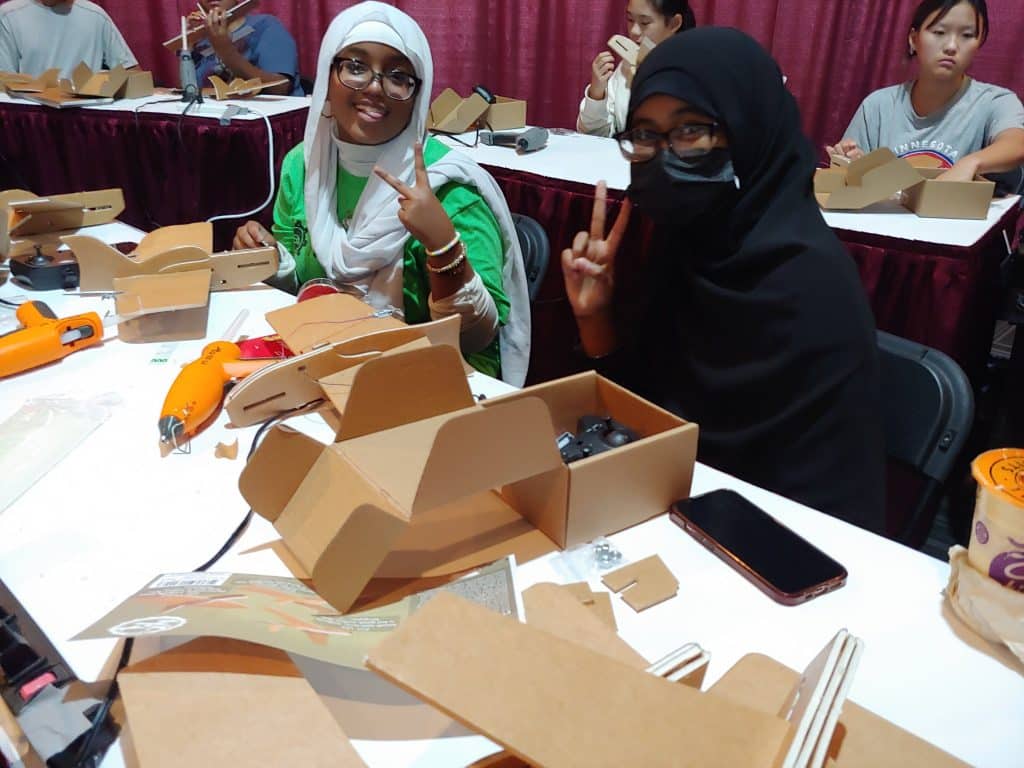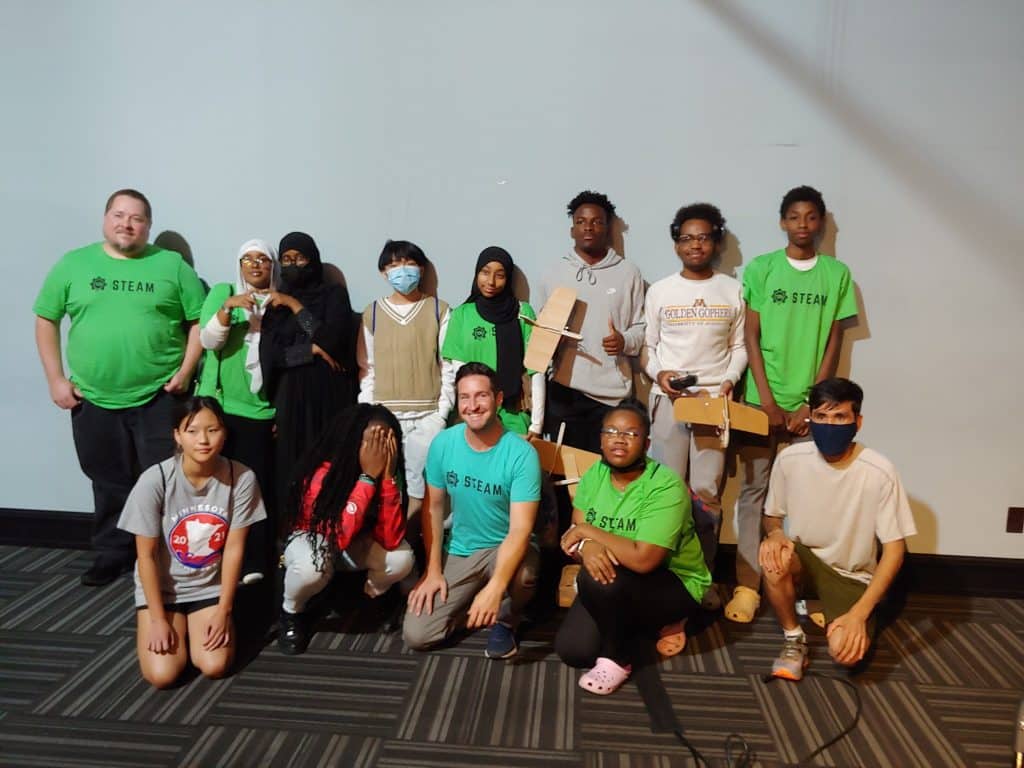Northland Community & Technical College and the National Center for Autonomous Technologies (NCAT) provided students with an opportunity to take part in a three-day Drone Business Plan Bootcamp, culminating in a pitch event to share their business idea, in hopes of turning their idea into a reality.
The bootcamp was designed for high school students interested in a two-year degree or college students at a two-year institution. This event was the Minnesota iteration of the National Science Foundation (NSF) Advanced Technological Education (ATE) program (award #1902003) titled “Educating Entrepreneurial Technicians for Unmanned Aerial Systems”. Similar competitions under this grant have been held at Sinclair College (Dayton, OH) and Atlantic Cape Community College (Hamilton, NJ). As a part of this grant project, the first ten participants who registered received an $800 stipend for participation in the workshop.
The Northland Drone BPC differed from other competitions under the NSF grant as if focused specifically on high-school aged students and underrepresented communities, rather than two-year college students. The 12 students that participated included ten BIPOC students from low-income neighborhoods in Minneapolis, one recently-relocated Afghani Refugee, and one student from rural Minnesota. Keeping with the Experience STEAM guiding principals, this bootcamp was focused on facilitating access to unique opportunities. Of the 12 students, only a handful had ever been exposed to sUAS technology, and even fewer had considered starting a business.
Throughout the first two days of the bootcamp, participants were given an overview of sUAS regulations, hardware, software, and autonomous applications by the utmost qualified experts from the Federal Aviation Administration (FAA), AUVSI, and leading Unmanned Aircraft Systems (UAS) companies. Once given the concepts, participants received valuable instruction on the types of business models, potential funding sources, and the foundations required to build a cohesive business plan executive summary and pitch deck from venture capitalists who’ve invested in drone technology innovation.

On the final day, participants were given the opportunity to work with University Entrepreneurship students to refine their business models, executive summaries, and pitch decks. Each participant presented their business idea to a panel of expert judges.
By facilitating meaningful and personal connections with the guest speakers, the BPC created a framework where students felt free to be themselves and pursue what interested them. The four ‘businesses’ that were pitched at the end were highly reflective of their interests, experiences, and worldview.
- A team of high-school athletes envisioned a drone company flying racing drones amongst players at football games.
- A team led by a lifeguard pitched an autonomous drone that could drop a life preserver to patrol beaches.
- A team that included participants with mothers as nurses created an autonomous rover to deliver medicine to contagious patients, naming the company Nebari, which is a friendly greeting in their home country of Malawi.
The lasting value of the Northland Drone BPC is the mental shift encouraged by creating an environment where critical thinking and curiosity were encouraged and participants were provided tools for success. Armed with this expanded worldview, participants can re-enter their communities with the methodology to create meaningful change.
Following this competition, Mall of America Executives expressed major interest in receiving the Drone Business Plan Competition proposals to investigate how they and their partners may be able to support.
NCAT STEAM Outreach Coordinator, Aaron Sykes boils the success of this workshop down to alternative perspectives. “Throughout the three-day bootcamp, participants engaged with a diverse set of speakers, representing everything from start-ups, to venture capitalism, to industry. We were able to provide the participants, most of which were from traditionally marginalized communities, with use cases of emerging technology and how to pair it with entrepreneurial concepts,” stated Sykes.
“Participants left the bootcamp with the skills and knowledge that they can now leverage in their communities. That is what creates economic and social mobility,” said Sykes.

